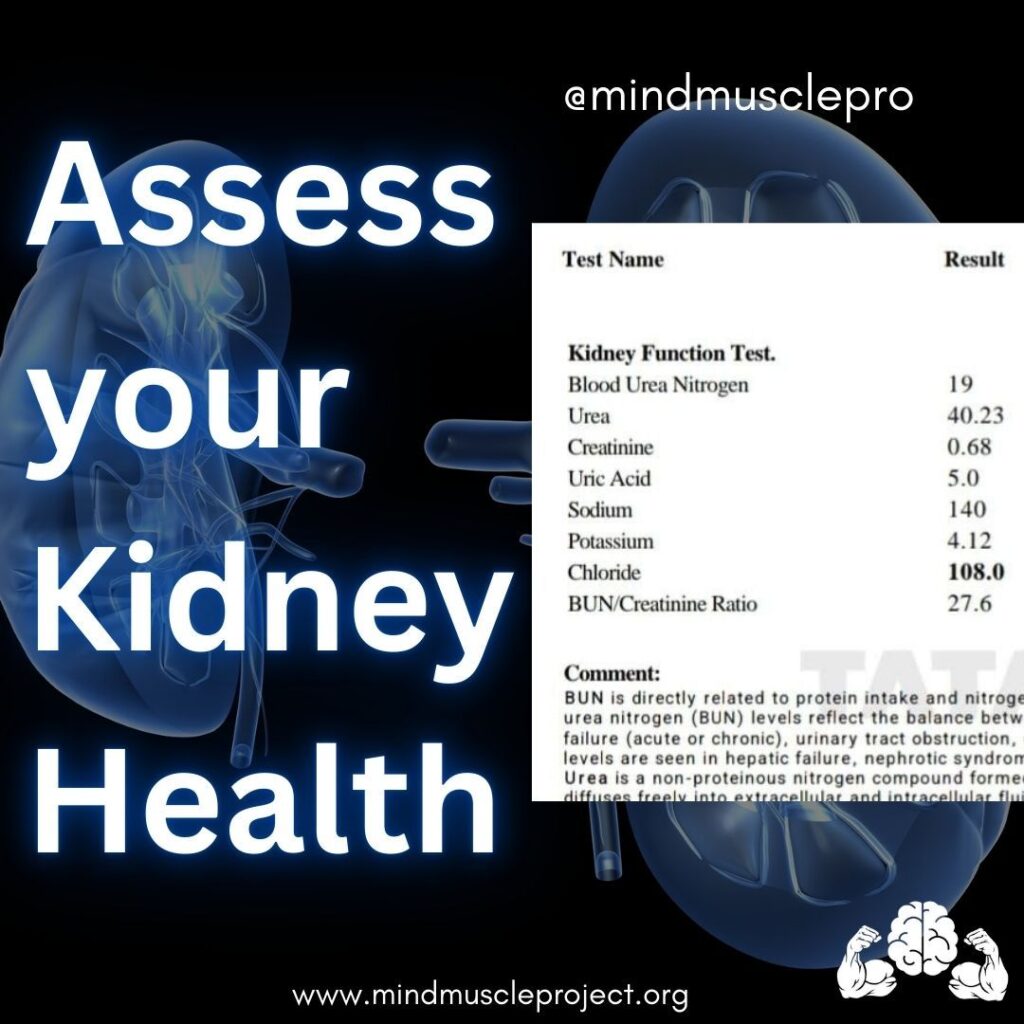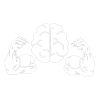The kidneys are vital organs that serve as the body’s filtration system, removing waste, excess fluids, and toxins to maintain homeostasis. Optimal kidney health is crucial for overall well-being, as impaired kidney function can silently affect multiple systems in the body.
In functional medicine, assessing kidney health goes beyond standard labs. It involves an understanding of blood markers, lifestyle factors, and early intervention strategies to optimize kidney function and prevent chronic disease. Below is a comprehensive guide to kidney health.
Why Kidney Health Matters #
Healthy kidneys ensure:
- Regulation of blood pressure.
- Maintenance of fluid and electrolyte balance.
- Removal of waste products from protein metabolism.
- Hormonal production for red blood cell formation (erythropoietin) and bone health (vitamin D activation).
Even minor kidney dysfunction can lead to systemic issues such as hypertension, fatigue, or fluid retention. Early detection through functional markers is essential for intervention.
Key Blood Markers for Kidney Health #
1. Creatinine #
- What It Is: A byproduct of creatine phosphate from muscle metabolism.
- Optimal Levels:
- Men: 0.85 – 1.1 mg/dL
- Women: 0.65 – 0.9 mg/dL
- Insights from Abnormal Levels:
- High creatinine: Indicates kidney stress or reduced filtration efficiency, possibly due to dehydration, high protein intake, or chronic kidney disease.
- Low creatinine: May signal low muscle mass or malnutrition.
Functional Medicine Focus:
- Monitor hydration and protein intake.
- Evaluate muscle health and metabolic efficiency.
2. Blood Urea Nitrogen (BUN) #
- What It Is: A measure of protein metabolism and the kidneys’ ability to excrete urea.
- Optimal Levels: 10 – 16 mg/dL
- Insights from Abnormal Levels:
- High BUN: Could indicate dehydration, high protein intake, or impaired kidney filtration.
- Low BUN: May suggest low protein intake, overhydration, or liver dysfunction.
Functional Medicine Focus:
- Assess hydration levels.
- Evaluate dietary protein intake and liver health.
3. BUN/Creatinine Ratio #
- What It Is: A calculated ratio to differentiate kidney dysfunction from hydration status.
- Optimal Ratio: 10:1 to 16:1
- Insights from Abnormal Ratios:
- High ratio: Suggests dehydration or gastrointestinal bleeding.
- Low ratio: May indicate kidney damage or malnutrition.
Functional Medicine Focus:
- Address dehydration or assess for underlying gastrointestinal issues.
4. Estimated Glomerular Filtration Rate (eGFR) #
- What It Is: A measure of kidney filtration efficiency, adjusted for age, sex, and race.
- Optimal Levels: >90 mL/min/1.73 m²
- Insights from Abnormal Levels:
- Low eGFR (<60): Indicates impaired kidney function, often seen in chronic kidney disease.
Functional Medicine Focus:
- Evaluate long-term kidney health.
- Investigate underlying causes like hypertension, diabetes, or inflammation.
5. Cystatin C #
- What It Is: A protein filtered by the kidneys, serving as a sensitive marker for early kidney dysfunction.
- Optimal Levels: 0.6 – 1.0 mg/L
- Insights from Abnormal Levels:
- High levels: Indicate kidney stress or impaired filtration.
- More accurate than creatinine for assessing kidney function in older adults or individuals with low muscle mass.
Functional Medicine Focus:
- Use Cystatin C alongside creatinine for a clearer picture of kidney health, especially in at-risk populations.
6. Uric Acid #
- What It Is: A byproduct of purine and fructose metabolism, excreted by the kidneys.
- Optimal Levels:
- Men: 3.5 – 6.0 mg/dL
- Women: 2.5 – 5.5 mg/dL
- Insights from Abnormal Levels:
- High levels: May suggest reduced kidney clearance, risk of gout, or metabolic dysfunction.
- Low levels: Could indicate nutritional deficiencies or the effect of medications.
Functional Medicine Focus:
- Optimize purine metabolism with dietary adjustments.
- Address metabolic health to reduce uric acid buildup.
7. Urine Albumin/Creatinine Ratio (ACR) #
- What It Is: A measure of albumin leakage in the urine, an early marker of kidney damage.
- Optimal Levels: <30 mg/g
- Insights from Abnormal Levels:
- Elevated ACR: Suggests microalbuminuria, an early sign of kidney dysfunction, often associated with diabetes or hypertension.
Functional Medicine Focus:
- Focus on glycemic control, blood pressure regulation, and reducing inflammation.
8. Serum Electrolytes (Sodium, Potassium, Chloride) #
- What They Are: Indicators of the kidneys’ ability to regulate fluid balance and acid-base status.
- Optimal Levels:
- Sodium: 136 – 144 mmol/L
- Potassium: 3.5 – 5.0 mmol/L
- Chloride: 98 – 106 mmol/L
- Insights from Abnormal Levels:
- Imbalances can signal dehydration, kidney disease, or acid-base disturbances.
Functional Medicine Focus:
- Address hydration, diet, and any underlying acid-base disorders.
9. Calcium and Phosphorus #
- What They Are: Minerals regulated by kidney function, essential for bone health.
- Optimal Levels:
- Calcium: 8.5 – 10.2 mg/dL
- Phosphorus: 2.5 – 4.5 mg/dL
- Insights from Abnormal Levels:
- High phosphorus/low calcium: Indicates impaired kidney filtration or secondary hyperparathyroidism.
Functional Medicine Focus:
- Support kidney function to maintain mineral balance.
10. Total Protein/Albumin #
- What It Is: Reflects protein status and kidney filtration efficiency.
- Optimal Levels:
- Total Protein: 6.5 – 8.0 g/dL
- Albumin: 3.5 – 5.0 g/dL
- Insights from Abnormal Levels:
- Low levels: Suggest protein loss through the kidneys, inflammation, or malnutrition.
#
Takeaway #
By monitoring kidney health markers properly, you can identify potential dysfunctions early and take proactive steps to restore balance. Remember, kidney health is central to overall well-being, and small changes today can prevent chronic issues tomorrow.





